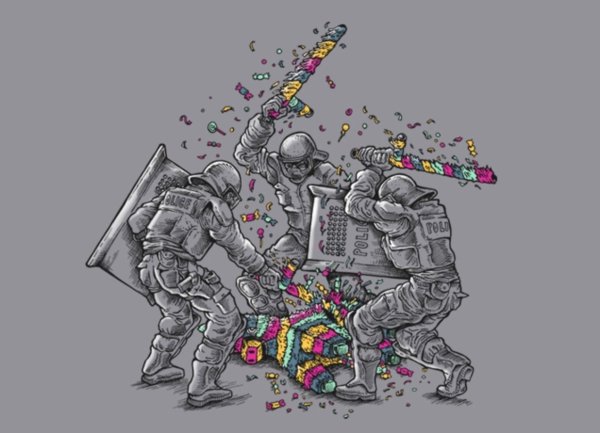If we ask the question “How would a society’s happiness be maximized?”, John Stuart Mill, an advocate of utilitarianism, would answer “by defending personal freedom of the individuals”. In fact, his commitment to following a utilitarian approach to forming an ideal society is the reason for his attempts of defending individual liberty in his book... Continue Reading →
Precarious Life: The Powers of Mourning and Violence / Judith Butler
"The media’s evacuation of the human through the image has to be understood, though, in terms of the broader problem that normative schemes of intelligibility, establish what will and will not be human, what will be a livable life, what will be a grievable death. These normative schemes operate not only by producing ideals of... Continue Reading →
State, Police, and Justified Violence
Didier Fassin writes in his ethnography of urban policing in France: "Expressing surprise at the existence of police violence could be considered as remarkable in itself. From a sociological point of view-and thus beyond the specific situation in France, violence is in fact constitutive of the very role of law enforcement. In modern societies, it... Continue Reading →
Unmasking Hypocrisy
Hypocrisy is the vice through which corruption becomes manifest. And Hannah Arendt, In her book On Revolution, writes about her reflection of the topic by looking into the Latin word persona, which in its original meaning signified the mask ancient actors used to wear in a play. And the mask had two functions: "it had... Continue Reading →
On Revolution / Hannah Arendt
Hannah Arendt writes in her book On Revolution: Quite apart from the threat of total annihilation, which conceivably could be eliminated by new technical discoveries such as a ‘clean’ bomb or an antimissile missile, there are a few signs pointing in this direction. There is first the fact that the seeds of total war developed... Continue Reading →
Pure Tyranny?
According to Aristotle, there are three species of political system, and an equal number of deviations, which are a sort of corruption of them. The first political system is kingship. And Aristotle claims that deviation from kingship is tyranny. Even though both are monarchies, kingship and tyranny could be considered as two ends of a... Continue Reading →





